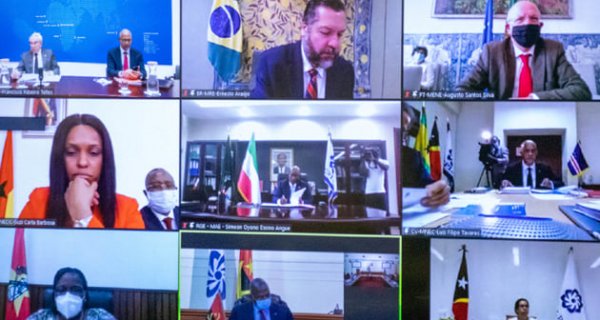"In relation to certain types of fees and charges, we have made a regulation here, in a sense, and in relation to other fees and charges, we leave it to the partnership instruments, because the convention is not immediately applicable for all types of mobility," he told the The ambassador of Cape Verde to Lisbon, the country that currently holds the rotating presidency of CPLP, is speaking.
Thus, for securities that must be the subject of specific partnerships, "in these additional partnership instruments, these rates will be regulated", said Eurico Monteiro, who spoke at the CPLP headquarters in Lisbon, at the end of the meeting of the Joint Technical Commission for the Mobility, which took place by video conference and in which the Member States reached a consensus on the final text of the proposal for the free movement of people within the community of Portuguese-speaking countries.
So "there was a direct intervention and a reference to additional instruments in relation to other types of fees," added the diplomat.
Thus, there are "three levels of fees". "At the first level we did direct regulation", with member states reaching consensus on a fee "exemption scheme", he said, without wanting to specify what type of mobility in question.
However, it was established that "for all types of mobility" there is a ceiling, that is, that Member States will not be able to adopt fees and charges that are higher than those concluded with other Member States.
"This as a precautionary measure, to avoid that the fixing of fees may constitute an obstacle to mobility" at CPLP, underlined Eurico Monteiro. "Therefore, we have established a general ceiling for all types of fees and for all types of mobility", he stressed.
Then, there is a third regulation, which allows the setting of rates and fees in the additional instruments of the partnerships, but always subject to the maximum ceiling, he clarified.
The member states of the Community of Portuguese Speaking Countries (CPLP) reached a consensus on the final proposal on mobility of citizens in the Portuguese-speaking world, announced the ambassador of Cape Verde this morning.
"We had the forecast for this joint technical meeting, convened following the meeting of the extraordinary Council of Ministers [of Foreign Affairs of the CPLP], which took place last December, and which mandated this commission (...) to finalize the text for the mobility convention at CPLP, (...) for three days of work. Fortunately, with a day and a half of work we managed to finish the text ", he said.
Mobility is one of the flags of the Cape Verdean presidency of CPLP.
"Today we are in a position to say that all Member States participated, at this technical level, represented by the migration and border services, registration and notary and foreign policy. And we reached a consensus on the whole text, from the preamble to the entire articulation of the text, (...) Nothing was suspended ", he guaranteed.
Now, it is up to the Council of Ministers "to evaluate and make the considerations that it deems convenient and, after this assessment, the final [summit] conference of heads of state and government, which should take place in July in Luanda, has the final say. is already awake ".
At issue in this meeting of the Joint Technical Commission for Mobility were three points of divergence between the Portuguese-speaking countries.
Two of the subjects - the certification of academic and professional orders and the contributions of citizens to Social Security - will be determined by the internal regulations of the States.
"In relation to these matters, the solution could not be other than to allow each State to regulate these matters at the level of its domestic law," said the representative of the Cape Verdean presidency of CPLP.
"The subject of academic certifications, which is complex, in which several states do not even have the power to dispose of these matters, because it is the professional orders [that have them]" was one of them.
"So we had to refer these matters to the internal rules of the States so that the issue could be resolved. And it was resolved in a peaceful manner," he added.
The third issue was that of fees and charges to be charged for mobility tickets.
CPLP has nine member states, Angola, Brazil, Cape Verde, Guinea-Bissau, Equatorial Guinea, Mozambique, Portugal, São Tomé and Príncipe and Timor-Leste.







